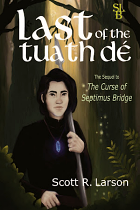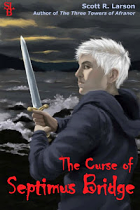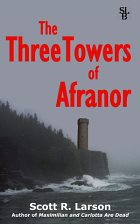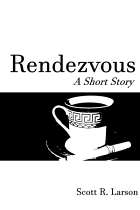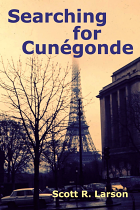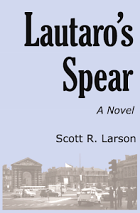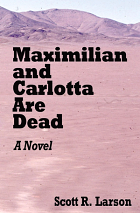My Ten Favorite English Language Movies of All Time…
This is a list of my ten favorite movies in the English language. Please note that this is not necessarily the same as what I think are the best movies of all time. It’s just that these are the ones closest to my heart. This may have as much to do with what was going on in my life when I saw them as with their technical or artistic merits. Needless to say, these would all get four stars. This list is alphabetical.
Being There (1979). This is a wonderful fable about a topic which has never been treated in the movies as well before or since: people’s penchant for projecting their own wants and needs onto their gurus, leaders, and media celebrities. It is also the virtual swan song of one of the acting geniuses of our age, Peter Sellers, in what was his greatest role. It was directed by Hal Ashby (1929-1988), who also gave us Harold and Maude and Shampoo.
Brazil (1985). The term “unique cinematic vision” has become a cliché, but nobody has one like animator and director and lone American Monty Python member Terry Gilliam. His best film to date, Brazil is hallucinogenic take on Brave New World and 1984. What is scary is how it seems even more relevant today than it was in the mid-1980s. Like all the best movies, it makes you laugh and it makes you cry and it is impossible to forget.
Casablanca (1942). This movie has been so over-exposed that, like It’s a Wonderful Life, it is in danger of being lost to stereotype and cliché. But if you are lucky enough to see it for the first time in a cinema, your spirit will be lifted as in few other films. Humphrey Bogart is so convincing as a cynic running from his own noble instincts that his ultimate climactic turn-around feels true and right. Many of the film’s lines have passed into the public domain, but somehow they still retain their power. It was directed by Michael Curtiz (1888-1962), whose many other films included Mildred Pierce and White Christmas.
Mr. Smith Goes to Washington (1939). No list of great movies would be complete without something by Frank Capra (1897-1991). A few years ago I might have included It’s a Wonderful Life, but after seeing that one 632 times, I have finally gotten over-exposed. I don’t think that could happen with Mr. Smith, which is actually the better film because it doesn’t rely on the trappings of the holidays or the intervention of an angel. Sure, it’s shamelessly patriotic and seems hopelessly idealistic from the perspective of the 1990s. But still it speaks to something that is inherently American: the belief that right ultimately prevails. Also, it features Jimmy Stewart in one of his very best roles.
My Fair Lady (1964). An immortal series of songs by Alan Jay Lerner and Frederick Loewe, the luminous presence (if not the singing voice) of Audrey Hepburn, and a great overall cast including the likes of Rex Harrison and Stanley Holloway make this my favorite movie musical. Not only have I never been able to get the songs (“I Could Have Danced All Night,” “On the Street Where You Live,” etc. etc.) out of my head (but in a good way), but the acting is so good that every time I watch it I forget that the people are actors. And for something as artificial as a movie musical, that’s quite an accomplishment. My lifelong interest in linguistics probably doesn’t hurt either. Director George Cukor (1899-1983) was already a legend, having made a ton of movies, including The Philadelphia Story and Born Yesterday.
My Favorite Year (1982). Any movie that gives Peter O’Toole full rein to play himself, or at least the public perception of himself (although he is ostensibly playing a composite of John Barrymore and Errol Flynn), is at the very least going to be entertaining. But there is something about this tribute to television’s live comedy shows of the 1950s that becomes incredibly touching as well as hilariously funny. But the best thing about the movie is O’Toole. He can make a bad movie enjoyable and a good movie like this one great. This was the directing debut Richard Benjamin, who had acting roles in such films as Goodbye, Columbus, Catch-22 and Portnoy’s Complaint and who went on to direct such movies as My Stepmother is an Alien and Mermaids.
C’era una volta il West (Once Upon a Time in the West) (1968). There are so many classic American westerns, so why is my favorite one of all time directed by an Italian? Because there is something mesmerizing about this slowly paced story of a widow trying to claim her rightful home. If it comes on the TV, I am hooked and will sit there until it is finished. Charles Bronson (probably because he has few lines) has never been more effective in any other movie. Henry Fonda, cast against type as a cold-blooded villain, is chilling. Jason Robards somehow stirs you just by asking for coffee. And Claudia Cardinale elicits sympathy and respect while exuding more than enough sex appeal to light up the screen. Most memorable, however, is Ennio Morricone’s score, his best ever and one of the best in any movie ever. Director Sergio Leone (1921-1989), whose name became synonymous with “spaghetti western,” followed this up with another great (in his own cut anyway) movie, Once Upon a Time in America.
Psycho (1960). Long before there was Freddy Krueger or Jason or Michael Myers (or 1998’s unlikely Gus Van Sant remake), there was Norman Bates. And with Anthony Perkins’s eerie performance, movies were changed forever. While body counts have gotten higher and quantities of spilled blood more massive, Norman remains the scariest of all the monsters because there is something so uncomfortably real about him. Alfred Hitchcock’s (1899-1980) achievement is all the more impressive for its complete reliance on suspense and masterful camera work and editing that makes you swear that you have seen explicit violence when you really haven’t. Three decades later, this is still the most scared I have ever been at the movies.
Schindler’s List (1993). The greatest film by this generation’s greatest director, Schindler’s List succeeds at an almost impossible task. It makes the Nazi Holocaust real in the way that only the unreal medium of motion pictures can. Steven Spielberg’s achievement is that somehow he doesn’t trivialize his subject, something that rarely happens in film or television. Really, this film is in a category by itself. Spielberg’s director filmography is a veritable list of some of the greatest movies of the 1970s, 1980s and 1990s. (Okay, maybe except for 1941.) You could make a good argument that his E.T. the Extra-Terrestrial should be on the all-time top ten as well.
2001: A Space Odyssey (1968). Before Deep Space 9 and Babylon 5, a magnificent space station orbited the earth (apparently undaunted by YK2 bugs). There were great science fiction films before this one, but for the first time the special effects were so accomplished that we could really believe that the space station actually existed, and the illusion was exhilarating. And if that wasn’t enough, we also got an epic story that spanned the dawn of intelligent life on earth to a cosmic future where the true nature of the universe begins to reveal itself. And HAL the computer has become a cultural icon that we can all recognize in the contrary personalities of our own desktop PCs. Would Star Wars or any of the other subsequent outer space extravaganzas been possible without 2001? A story by Arthur C. Clarke was the basis for the screenplay by Clarke and director Stanley Kubrick (1928-1999), whose other classics include Spartacus, Lolita, Dr. Strangelove, and A Clockwork Orange). Contrary to popular belief, you do not need to be on drugs to enjoy this movie. This classic film’s mystique is marred only by a pointless 1984 sequel by Peter Hyams and the fact that there won’t actually be space station as grand as this in the year 2001.
Click here for a list of my ten all-time favorite movies in languages other than English
Click here for a list of all my five-star and four-star movies















